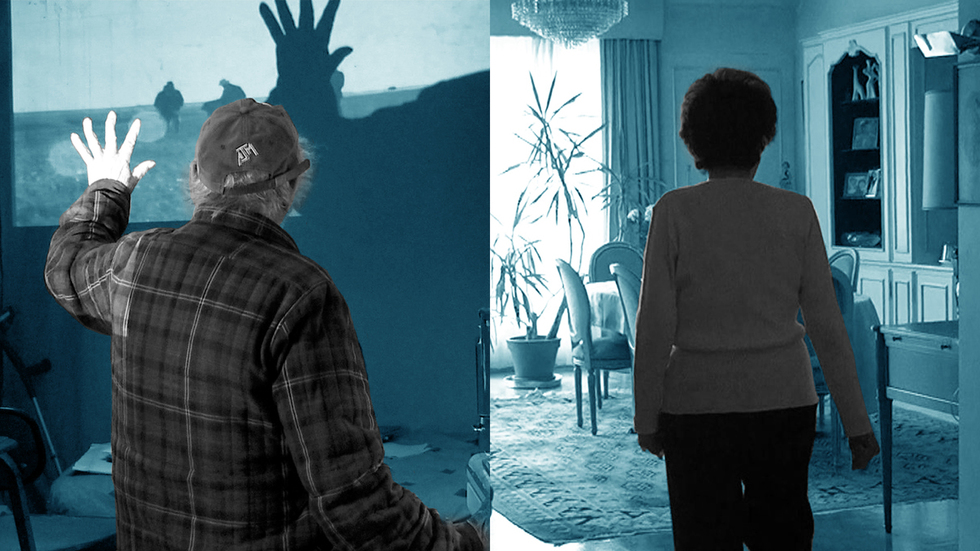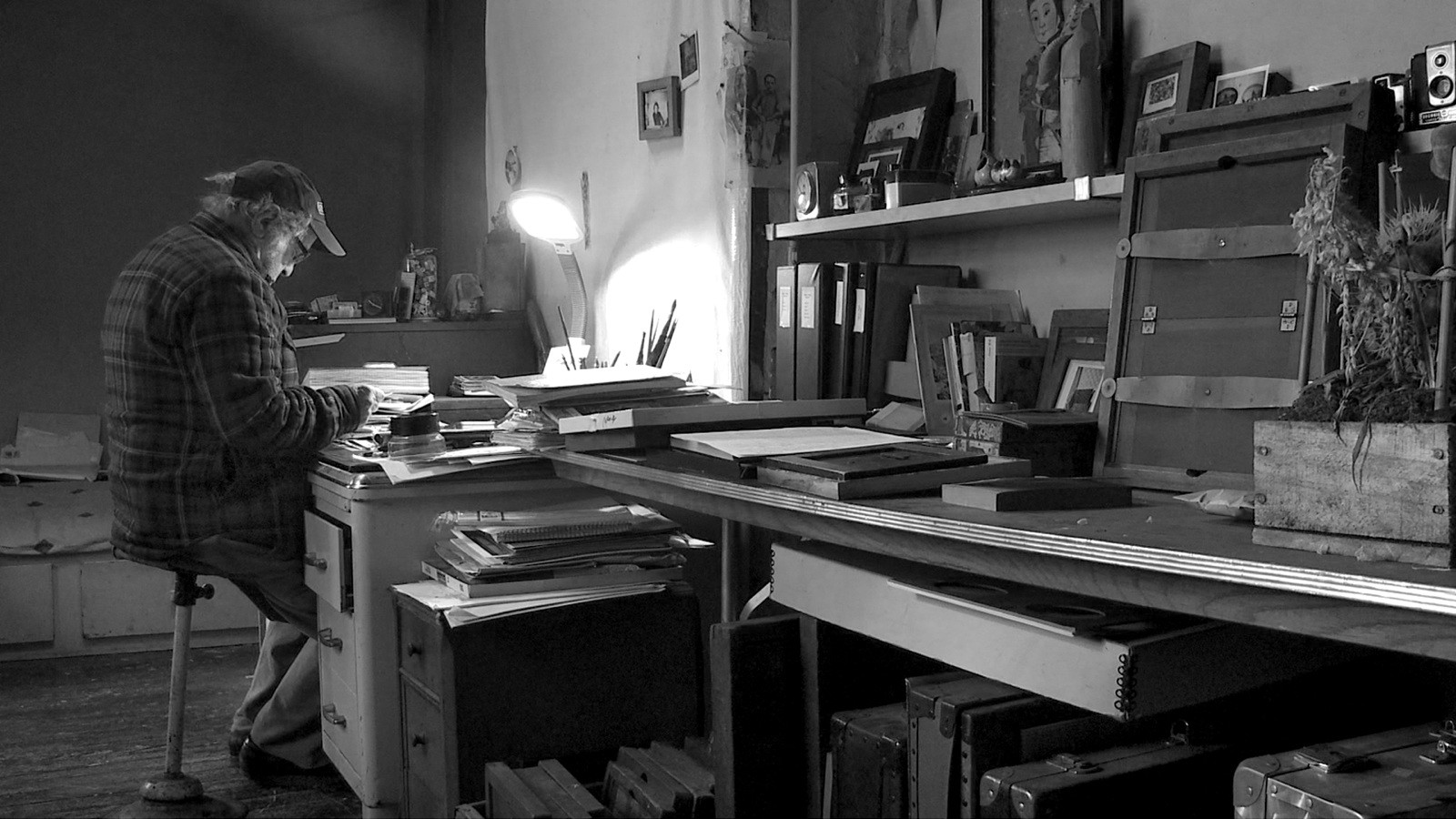
BY MATTHEW ENG |
The Best of Woman-Directed Films at the 2015 New York Film Festival
Because Boyle, Spielberg, and Zemeckis weren’t the only directors at NYFF this year…

I know. There’s always something a bit regrettable about lists like these, an annoyance that can be boiled down to the familiar sentiment, “Why do we have to classify these films as woman-directed anyway? Why can’t they just be films, period?”
Of course, woman-directed films are films, period. And, sure, we can hardly wait for the day when lists like these are redundant because women directors are granted the same prized opportunities and working just as regularly as their male counterparts. But that’s not the reality we live in.
At a festival whose opening, closing, and centerpiece screenings were all male-directed biopics of variously famous men, women filmmakers weren’t exactly standing at the forefront. But that doesn’t mean they were altogether invisible or that their works are comparably incidental, even if they frequently had to compete for reportage with such press-starved upstarts as Danny Boyle, Steven Spielberg, and Robert Zemeckis.
Many of the New York Film Festival’s finest feature offerings were those shepherded by women, including Chilean filmmaker Carmen Castillo’s political insurrection documentary We Are Alive; Rebel Citizen, Pamela Yates’ tributary portrait of the legendary cinematographer Haskell Wexler; and the never-more-timely nonfictional chronicle Immigration Battle/Reasons to Believe, co-directed by Shari Robertson. (Let’s also give a fond nod to Everything is Copy, Jacob Bernstein and Nick Hooker’s lovely, rounded profile of the former’s late mother, the beloved director, screenwriter, essayist, and heroine Nora Ephron.)
Among this small but splendid handful of woman-directed enterprises, five projects easily stand out from the pack. Each is the work of a director who has returned to feature filmmaking after periods of considerable absence, ranging from five years to, in one case, nearly thirty. And all of their pictures are exciting, specific, and adventurous cinematic visions that are highly worth seeking out if/when they eventually land in theaters, which is where they unquestionably belong.

Chevalier
After the arthouse breakthrough of her 2010 crypto-comedy Attenberg, Greek writer-director Athina Rachel Tsangari returns with Chevalier, a Mediterranean buddy movie/behavioral study in which six vacationing male friends (played by Panos Koronis, Giros Pyrpassopoulos, and Greek pop king Sakis Rouvas, among others) vie for the dubious title of “best in general” while stuck together on a luxury yacht bound for Athens. Gourmet dinners, tone-deaf musical performances, and (literal) manhood-measuring ensue.
Tsangari, a mainstay in contemporary Greek cinema who produced Yorgos Lanthimos’ Dogtooth and Alps and is currently the Film Society of Lincoln Center’s helmer-in-residence, sends up the male ego with a cheerful edge and delicate lensing, honoring the absurdity of this impromptu contest with a straight face and a stealthy deadpan that is as engagingly implicative as it is genuinely funny. It’s tempting — but misleading — to tag it as some stranger, international answer to The Hangover. If the shoe fits, though, then it’s at least a Hangover with a brain, a heart, and a voice, and their owner is eager and able to dismantle the modern-day man-child once and for all.

Don’t Blink — Robert Frank
Don’t Blink is more of an order than a title. Laura Israel’s documentary about her frequent collaborator, the celebrated photographer and experimental filmmaker Robert Frank, is overwhelming in the best possible way. Frank’s famously era-specific photography is so striking in its direct spontaneity, the scattered snippets of his films so arresting in their shaggy enthusiasm, that as each of his works slips and seeps into one another, one can’t help but struggle to keep up with the beautiful damn thing.
Don’t Blink is biographical portraiture re-visualized as living and breathing collage, comprised of artistic watersheds and personal crossroads, all the while twisting and spreading itself so as to capture as much of life as its towering subject so indelibly encapsulates.

Heart of a Dog
Yes, Heart of a Dog, the new experimental documentary that marks the cinematic reemergence of New York’s avant-garde icon Laurie Anderson, is a touching eulogy to the director’s late rat terrier Lolabelle. But it’s also about family memories, Port Authority, the pyramids, NSA and government surveillance, suburban Illinois, Buddhism, 9/11, birds of prey, and Greenwich Village, among the multitude of other things that are racing around Anderson’s brilliantly preoccupied brain. But these aren’t just eccentric incongruities.
Heart of a Dog is an inquiry into the mind, one that is centered around but bold enough to wander from the keyboard-playing canine of its title, a pet so beloved that Anderson details a dream of birthing her in the film’s illustrated opening. Anderson settles us into her vast mind-scape through seamlessly-mixed media and an astonishingly enveloping sound design, furnishing a bountiful and bittersweet cinematic journey while also making a case for herself as a talented and thrillingly exploratory filmmaker worth seeing more from.

Maggie’s Plan
Writer-director Rebecca Miller has made a name for herself in the indie landscape for appealingly intimate yet frankly uneven character dramas like Angela, Personal Velocity, The Ballad of Jack and Rose, and The Private Lives of Pippa Lee, which each revolve around American women of various ages, backgrounds, and — most importantly — afflictions. So, color me surprised, then, that Maggie’s Plan, the filmmaker’s first project since 2009’s Pippa Lee, is a genuine hoot. Maggie is a merrily messy comedy about the romantic trials and accumulating tribulations of Greta Gerwig’s titular heroine, a meddlesome, overly-apologetic New York thirtysomething whose desire for a child leads her into a love triangle with a frustrated professor-cum-novelist (Ethan Hawke) and his über-highbrow Danish wife (Julianne Moore, reveling in deadpan, flawlessly-accented affect), who becomes Maggie's rival, then her co-conspirator.
Miller’s touch has never been lighter and the fizzy efforts of her ensemble (which also includes a terrifically befuddled Travis Fimmel as Maggie's would-be baby daddy and SNL alums Bill Hader and Maya Rudolph reuniting as Maggie’s married pals) keep this bubbly newborn happily bouncing through some unnecessary, late-stage repetitions. I’m aware that, for some audiences, watching Gerwig embody yet another scatterbrained metropolitan is like falling through the ninth circle of hell, and while this isn’t necessarily Peak Gerwig, the actress is, as always, an affably invaluable asset to her project. In perfect tandem with Miller, Gerwig honors Maggie’s subtle screwball instincts, while also deepening its story into one that not only recognizes but joyously embraces all of life’s precariously personal perils.

No Home Movie
Chantal Akerman’s No Home Movie is a moving motherly remembrance that would be a piercing and demanding work of art in any context. But as seen through the lens of Akerman’s abrupt passing on October 6th during the Festival’s final week, with the cruel knowledge that this is her final film, the film’s heartbreak becomes only more palpable, its sense of helpless, forthcoming solitude only more tragic.
In No Home Movie, Akerman pages through the final tedious days of her Auschwitz-surviving mother Natalia, shuttling us through various Skype calls and brief visits to her mother’s Belgian apartment, where we watch them eat, argue, and banter with each other. It isn’t a great film per se, or even particularly great Akerman, but for a subject so deeply ingrained with grief, the punishing nature of the film’s structure feels entirely earned — even imperative — and certainly undeserving of the downright callous reception it received at Locarno, where it was reportedly booed at a press screening. Akerman details this personal history with an emotional specificity that feels both warmly candid and starkly enigmatic, delivering a film that didn’t need to be a fan-pleasing masterpiece because, truthfully, Akerman never owed us a single thing.
So many of today’s filmmakers have risen and soared on the back of Chantal Akerman. What an incomparable and unapologetic career. What a bold and magnificent cinematic pioneer.